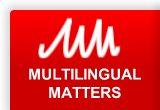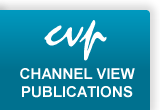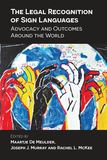- Format:
- Paperback - 352 pages
- Related Formats:
- Hardback PDF EPUB
- ISBN:
- 9781788923996
- Published:
- 17 Jun 2019
- Publisher:
- Multilingual Matters
- Dimensions:
- 234 x 156
- Availability:
-
Available
Summary
This book presents the first ever comprehensive overview of national laws recognising sign languages, the impacts they have and the advocacy campaigns which led to their creation. It comprises 18 studies from communities across Europe, the US, South America, Asia and New Zealand. They set sign language legislation within the national context of language policies in each country and show patterns of intersection between language ideologies, public policy and deaf communities’ discourses. The chapters are grounded in a collaborative writing approach between deaf and hearing scholars and activists involved in legislative campaigns. Each one describes a deaf community’s expectations and hopes for legal recognition and the type of sign language legislation achieved. The chapters also discuss the strategies used in achieving the passage of the legislation, as well as an account of barriers confronted and surmounted (or not) in the legislative process. The book will be of interest to language activists in the fields of sign language and other minority languages, policymakers and researchers in deaf studies, sign linguistics, sociolinguistics, human rights law and applied linguistics.
Review:
Only a small number of the thousands of endangered languages are legally recognized or protected, but among them, the 19 sign languages discussed in this volume show how acknowledgement in national legislation reveals a significant advance in 21st century language management. This collection detailing the way this happened is a major contribution to the study of language policy.
- Bernard Spolsky, Emeritus, Bar-Ilan University, IsraelFormal recognition campaigns have recently elevated the 140-year battle for Deaf children’s rights to access their sign languages, cultures and Deaf educators to new levels of political discourse. The authors of this book have succeeded magnificently in illustrating current progress and highlighting some of the obstacles which remain to be overcome.
- Paddy Ladd, author of Understanding Deaf CultureThis is a timely and important book. It provides the first comprehensive analysis of the growing legal recognition of sign languages internationally, as well as the wider social and political advocacy movements underpinning these developments. Drawing together deaf and hearing contributors, academics and activists, this volume traverses the fields of language rights, language policy, and sociolinguistics. Expertly curated, it will be an essential guide and benchmark for academic and legal discussions of sign languages for years to come.
- Stephen May, University of Auckland, New ZealandThis book gives the reader a deep understanding of the complex process of sign language recognition. It serves as a wonderful source for those who plan to advocate for sign language recognition or who would like to improve the current status and legislation of sign language and rights of its users in their respective countries.
- Markku Jokinen, Finnish Association of the Deaf, FinlandThis is an absolutely fantastic book and it is impossible to even start describing
its richness. Read it!
- Language Policy (2019) 18 - Tove Skutnabb-Kangas
Author Biography:
Maartje De Meulder is Postdoctoral Research Fellow at the Namur Institute of Language, Text and Transmediality (NaLTT), University of Namur, Belgium. Her research interests include sign language policy and planning, sign language rights, family language policy, multilingualism and sign language maintenance and revitalisation.
Joseph J. Murray is Professor in the Department of American Sign Language and Deaf Studies, Gallaudet University, Washington, DC, USA. A trained historian, his work explores ways in which deaf people navigate their societies as sign language minorities.
Rachel L. McKee is Programme Director of NZSL Studies, Victoria University of Wellington, New Zealand. Her research interests include sign language documentation, sign language policy, sociolinguistic variation in sign language, interpreting, and sign language teaching and learning.
Readership Level:
General, Postgraduate, Research / Professional, Undergraduate
Biographical Notes
Description
Reviews
Review Quotes
Table of Contents
Book Preview


